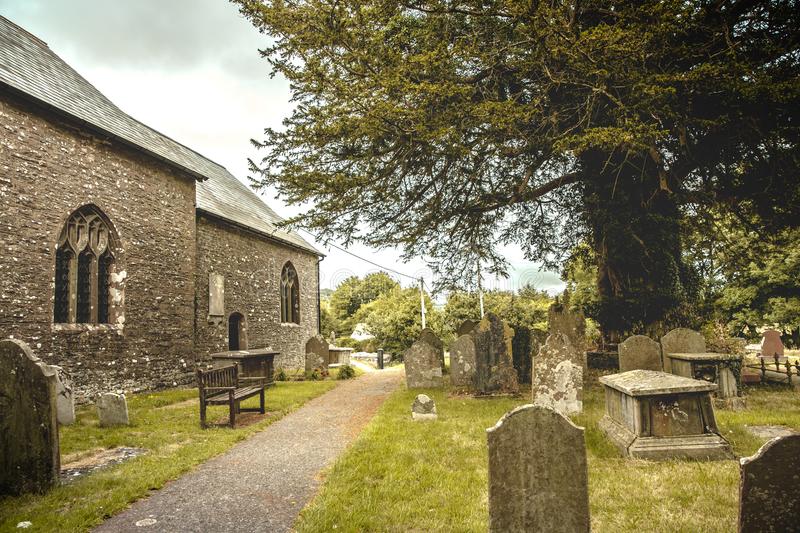豪斯曼:《诗歌外编》: 第十一首:上帝的土地
《诗歌外编》
XI
第十一首
上帝的土地
God’s Acre
英国 A. E. 豪斯曼原著
Alfred Edward Housman (1859 – 1936)
徐家祯翻译

Morning up the eastern stair
Marches, azuring the air,
And the foot of twilight still
Is stolen toward the western sill.
Blithe the maids go milking, blithe
Men in hayfields stone the scythe,
All the land’s alive around
Except the churchyard’s idle ground.
— There’s empty acres west and east
But aye ’tis God’s that bears the least:
This hopeless garden that they sow
With the seeds that never grow.
— They shall have breath that never were,
But he that was shall have it ne’er;
The unconceived and unbegot
Shall look on heaven, but he shall not.
— The heart with many wildfires lit,
Ice is not so cold as it.
The thirst that rivers could not lay
A little dust has quenched for aye;
And in a fathom’s compass lie
Thoughts much wider than the sky.
早晨往东方的阶梯上行进,
天空蔚蓝而明净,
晨曦的余光偷偷地
朝着西方的岩脊消隐。
活泼的姑娘去挤牛奶,
愉快的男子在草场上将镰刀磨整,
四周的田野生气蓬勃,
只有教堂的院子死气沉沉。
—— 四面八方都能找到荒芜之地,
但永远都是上帝的土地最少收获:
他们在无望的园子里
播撒的种子永不成活。
—— 那些应该呼吸的从来没有呼吸过,
他以前呼吸过,却再也不会呼吸;
那些没有怀胎的,没有出生的,
会观望天堂,而他却不会如此。
—— 曾经燃烧过无数野火的心,
现在已经冷得比冰雪更可怕。
以前连河流都无法平息的干渴,
现在一粒灰尘就能永远打垮;
囿于六呎深地域中的思想,
曾经比天空更辽阔广大。
二 0 二二年六月二日
译于澳大利亚刻来佛寺爱闲堂
* 这首诗,是《诗歌外编》中的第 11 首。
这首诗的题目直译是“上帝的土地”,实际上指的是“教堂的墓地”。这首诗有几 个不同的版本,内容一样,但分行不一致:有的是全诗仅一节;有的分成前后两部分, 以第二个破折号为分界线;有的不但分成两部分,而且还把后面一部分当成独立的一 首诗,编号为“11A”;有的有题目,有的则无题。我觉得还是把没有破折号的八句当作 第一节,后面每个破折号作为一节,从内容上说更加整齐划一。
这首诗的内容可能与《圣经》中的一个关于播种的比喻有关:
That same day Jesus went out of the house and sat by the lake. Such large crowds gathered around him that he got into a boat and sat in it, while all the people stood on the shore. Then he told them many things in parables, saying: “A farmer went out to sow his seed. As he was scattering the seed, some fell along the path, and the birds came and ate it up. Some fell on rocky places, where it did not have much soil. It sprang up quickly, because the soil was shallow. But when the sun came up, the plants were scorched, and they withered because they had no root. Other seed fell among thorns, which grew up and choked the plants. Still other seed fell on good soil, where it produced a crop— a hundred, sixty or thirty times what was sown. Whoever has ears, let them hear.”
The disciples came to him and asked, “Why do you speak to the people in parables?”
He replied, “Because the knowledge of the secrets of the kingdom of heaven has been given to you, but not to them. Whoever has will be given more, and they will have an abundance. Whoever does not have, even what they have will be taken from them. This is why I speak to them in parables:
“Though seeing, they do not see; though hearing, they do not hear or understand. In them is fulfilled the prophecy of Isaiah:
“‘You will be ever hearing but never understanding; you will be ever seeing but never perceiving. For this people’s heart has become calloused; they hardly hear with their ears, and they have closed their eyes. Otherwise they might see with their eyes, hear with their ears, understand with their hearts and turn, and I would heal them.’
But blessed are your eyes because they see, and your ears because they hear.For truly I tell you, many prophets and righteous people longed to see what you see but did not see it, and to hear what you hear but did not hear it.
“Listen then to what the parable of the sower means:When anyone hears the message about the kingdom and does not understand it, the evil one comes and snatches away what was sown in their heart. This is the seed sown along the path. The seed falling on rocky ground refers to someone who hears the word and at once receives it with joy. But since they have no root, they last only a short time. When trouble or persecution comes because of the word, they quickly fall away. The seed falling among the thorns refers to someone who hears the word, but the worries of this life and the deceitfulness of wealth choke the word, making it unfruitful. But the seed falling on good soil refers to someone who hears the word and understands it. This is the one who produces a crop, yielding a hundred, sixty or thirty times what was sown.” (Matthew 13:1-23)
当那一天,耶稣从房子里出来,坐在海边。有许多人到 他那里聚集,他只得上船坐下,众人都站在岸上。他用比喻对他 们讲许多道理,说:“有一个撒种的出去撒种;撒的时候,有落 在路旁的,飞鸟来吃尽了;有落在土浅石头地上的,土既不深, 发苗最快,日头出来一晒,因为没有根,就枯干了;有落在荆棘 里的,荆棘长起来,把他挤住了;又有落在好土里的,就结实, 有一百倍的,有六十倍的,有三十倍的。有耳可听的,就应当 听!”
门徒进前来,问耶稣说:“对众人讲话,为什么用比喻 呢?”
耶稣回答说:“因为天国的奥秘只叫你们知道,不叫他们 知道。凡有的,还要加给他,叫他有余;凡没有的,连他所有的, 也要夺去。所以我用比喻对他们讲,是因他们看也看不见,听也听不见,也不明白。在他们身上,正应了以赛亚的预言,说:你 们听是要听见,却不明白;看是要看见,却不晓得;因为这百姓 油蒙了心,耳朵发沉,眼睛闭着,恐怕眼睛看见,耳朵听见,心 里明白,回转过来,我就医治他们。
“但你们的眼睛是有福的,因为看见了;你们的耳朵也是 有福的,因为听见了。我实在告诉你们,从前有许多先知和义人 要看你们所看的,却没有看见,要听你们所听的,却没有听见。
“所以,你们当听这撒种的比喻。凡听见天国道理不明白 的,那恶者就来,把所撒在他心里的夺了去;这就是撒在路旁的 了。撒在石头地上的,就是人听了道,当下欢喜领受,只因心里 没有根,不过是暂时的,及至为道遭了患难,或是受了逼迫,立 刻就跌倒了。撒在荆棘里的,就是人听了道,后来有世上的思虑、 钱财的迷惑把道挤住了,不能结实。撒在好地上的,就是人听道 明白了,后来结实,有一百倍的,有六十倍的,有三十倍的。” (马太福音 13:1-23)
但是,讽刺的是,《圣经》里说的播种,虽然有的种子因为掉在不易生长的地 里,种子无法成活,但是,至少还有一部分掉在沃土里的种子仍能成长壮大。而在上 帝自己的土地里的种子,却“永不成活”。这是因为在墓园里,“种”下去的是“死人”!
诗的一开头,描写了一个晴朗高爽的早晨。诗人用拟人手法写了早晨的到来和 晨曦的离去。人世间的生活正在生气勃勃地开始,而教堂里,却死气沉沉。这是因为 “在无望的园子里,播撒的种子永不成活”。教堂里埋的是死人,当然,对他们来说是 “无望”的,所以诗人把墓园叫作“无望的园子”。
诗人不相信有天堂,所以,在诗的第三节,他说:“那些没有怀胎的,没有出生 的,会观望天堂,而他不会如此。” “他”,指的是死者。
最后一段六个诗句,每两句是一组对比,比较人生前和死后的不同:生前“曾经 燃烧过无数野火的心,现在已经冷得比冰雪更可怕”;“以前连河流都无法平息的干渴, 现在一粒灰尘就能永远打垮”(这里的“干渴”可能指对知识的渴望);以前曾有过“比 天空更辽阔广大”的思想,现在却局限在“六呎深的地域中”了。在英国,墓穴一般就挖 六英尺深,所以“六呎深的地域”就是指一个墓穴。。
原诗共 22 句,译诗分成四节,每节双句押一韵。